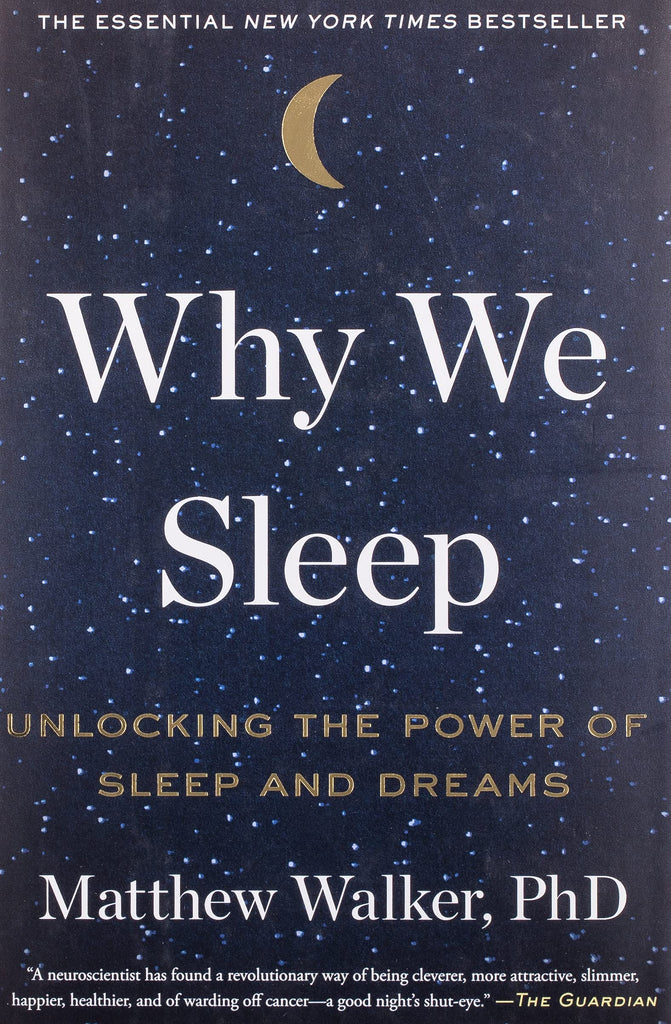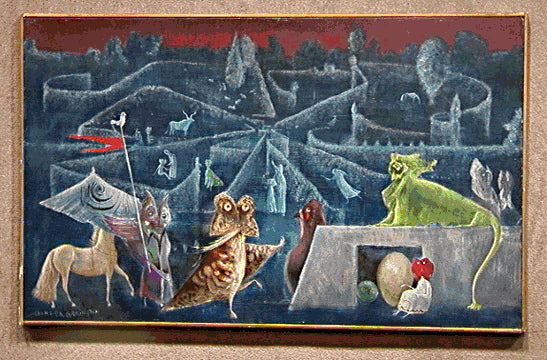Sleep: every human being needs it. Yet the way we fall asleep and stay asleep, and what we see in our dreams once we're in them differs from person to person. Sleep is a universal, but individual, element of the human experience.
In this month's Less Edit, we dig into the many angles of sleep, from the science to the subconscious, bedtime stories and even how climate change could make good sleep harder to get.

Book: Why We Sleep by Dr. Matthew Walker
We all know the feeling of waking from a good night’s sleep: refreshed, energized, ready to take on the world. Sleep is, according to acclaimed sleep scientist Dr. Matthew Walker, your super power. But why does 8 hours of shut eye give you the energy to live your best life? In Why We Sleep, Walker calls on his work as a neuroscientist, sleep researcher and director of the Center for Human Sleep Science at the University of California at Berkeley to provide a comprehensive and entertaining journey through the rich and multifaceted world of sleep science. He also offers practical tips for how you can sleep better. A few key takeaways: inadequate sleep makes you age faster, alcohol is not a sleep aid, keep your bedroom at 65ºF for the best sleep, and naps are generally good, if taken before 3pm.

Short film: Invisible Monsters and Tomato Soup , The New Yorker
The bizarre world of dreams becomes even odder when similar night visions are shared among complete strangers. Filmmakers Stevie Borrello, Marcie LaCerte, and Meghan McDonough interviewed 80 people during the early months of the pandemic lockdown to see if and where dreams about the Coronavirus intersected. The result is a surreal foray into the collective unconscious where commonalities like unseen demons, faceless governing figures, baking sourdough under pressure and crowds ransacking stores provide threads linking together the shared human experience. There’s even the dreaded sensation of being naked in a crowd, though the person dreaming was fully clothed, minus her mask.
Watch Invisible Monsters and Tomato Soup

Podcast: Sleep With Me
Who says bedtime stories aren’t for adults? Not Sleep With Me podcast host Drew Ackerman, AKA “Dearest Scooter”. Drawing inspiration from his own childhood insomnia and the late night comedy radio that kept him company on sleepless nights, each episode features a rambling, monotone story that’s humorous and soothing. Repeating themes surface throughout, including The Great Lady Witchbeard, Tales of the North Pole and the Great British Bake Off. Contrary to popular podcasts that seek to entertain, educate or inform readers, this show’s tagline says it all: it’s the podcast that puts you to sleep.

Art: Surrealist painter Leonora Carrington
Leave it to the Surrealists to give to the world art pieces that felt nearly indistinguishable from the illogical abstractions of dreams. Surrealism is a cultural movement that emerged after World War I as a way to express the subconscious. One such artist, Leonora Carrington, created in the space between living and waking. Born in Britain in 1917, she lived in Paris during the war, Mexico City after (where she spent the bulk of her time, and her contemporaries included Frida Kahlo and Remedios Varo ), and eventually New York City. Her surrealist work includes paintings, sculptures and even novels. Wrote Marina Warner in the Guardian, “[Carrington] was always tapping her powers of fantasy, by numerous techniques – including, especially, daydreaming on that threshold between sleep and waking where ‘hypnagogic visions’ appear.”
Read more and see Carrington's work
Article: An Effect of Climate Change You Could Really Lose Sleep Over, The New York Times
If sleeping in a hot room makes you sleep worse, it stands to reason that sleeping on a hotter planet would have the same effect. At least that’s the claim probed in this NYTimes article that discusses a recently published study on impacts of climate change on sleep. The study, which was originally published in the journal Science Advances, used sleep data collected from the Center of Disease Control and Prevention that monitors the quality of people’s sleep in regions around the US. Authors of the study compared the sleep quality data to temperature data in specific locations, which led them to arrive at the conclusion: yes, climate change will impact sleep, and the most vulnerable will be the elderly and poor who do not have access to air conditioning.
Read An Effect of Climate Change You Could Really Lose Sleep Over